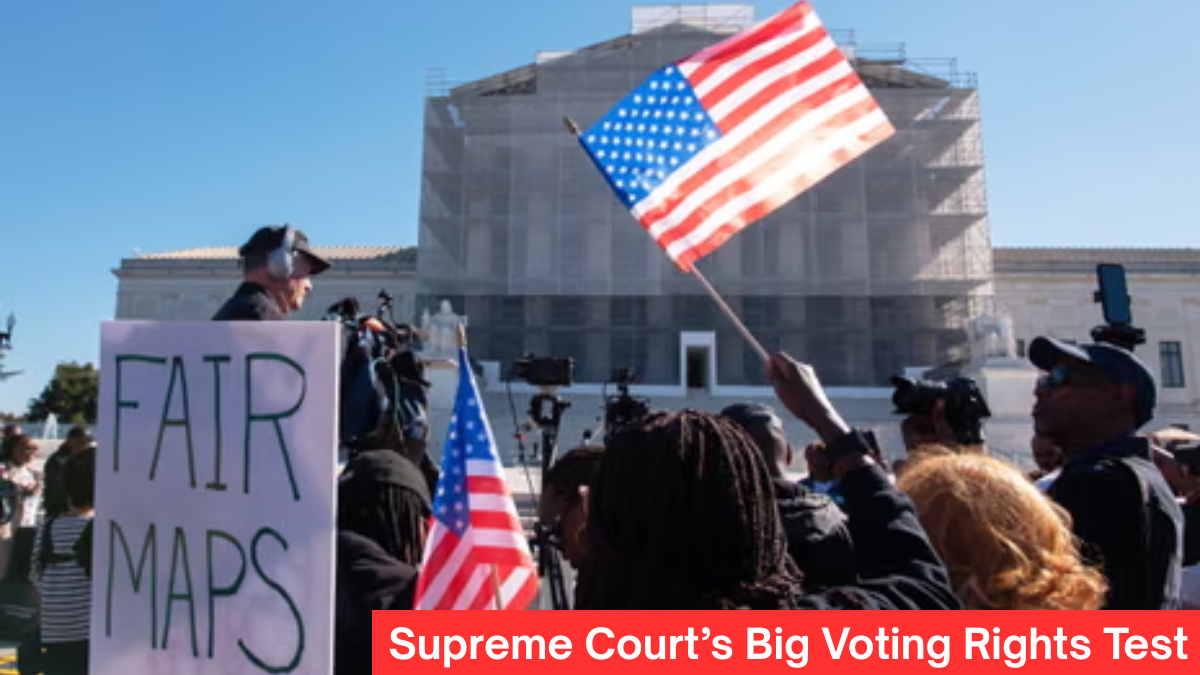In 1965, the Voting Rights Act became a cornerstone of American democracy. Signed after the violence of Bloody Sunday, it aimed to end decades of discrimination that blocked Black citizens from voting.
Sixty years later, on October 15, 2025, the law faces one of its biggest tests in Louisiana v. Callais. The outcome could reshape how votes are counted and whose voices matter most in the 2026 elections.
Key Takeaways
- The Supreme Court is hearing Louisiana v. Callais, a case that challenges Section 2 of the Voting Rights Act.
- Section 2 prevents drawing voting districts that weaken minority power.
- A ruling against it could impact 12 to 19 congressional seats and reduce minority representation.
- Recent laws in 18 states have already tightened voting access, affecting millions.
- The case could redefine how America protects equal voting rights.
The Law That Changed America
Before the Voting Rights Act, voter suppression was open and aggressive—poll taxes, literacy tests, and intimidation. The Act stopped those tactics.
The results were historic: Black voter registration in Mississippi rose from 6% to 59% within five years, and Black representation in Congress grew from 6 to 60 members.
But over time, the law has weakened. In 2013, the Shelby County decision removed the rule that forced states to get federal approval for voting changes. Since then, restrictive laws have increased by 40%, raising concerns about fair elections.
Louisiana v. Callais: The New Flashpoint
At the heart of the current case is Louisiana’s congressional map. Black residents make up one-third of the state’s population but have just one district where they can elect their preferred candidate. A lower court said that violated Section 2, leading to a new map with two opportunity districts in 2024.
However, some white voters challenged the change, calling it “reverse discrimination.” The state’s new argument says race should not guide redistricting—even to correct racial bias.
During hearings, conservative justices questioned how long race-conscious remedies should continue, while liberal justices warned that removing them could let states quietly weaken minority voting strength.
What’s At Stake
If the Court strikes down or limits Section 2, analysts say Republicans could gain up to 19 House seats by 2026. That shift could reshape Congress without winning more votes. States like Louisiana, Alabama, and Texas would see major changes, and new Black representatives such as Cleo Fields could lose their districts.
Turnout data adds to the concern. In 2024, Black voter turnout in the South was 62%, compared to 71% among white voters. Combine that with 22 new voting restrictions across 18 states, and nearly 5 million minority votes could be affected.
Voices From The Streets And Social Media
Outside the Supreme Court, hundreds rallied with signs reading “Fight for Fair Maps.” Songs like Beyoncé’s Freedom filled the air. Louisiana’s Rep. Troy Carter reminded crowds that despite being a third of the state’s population, only five Black lawmakers have ever served in Congress from Louisiana.
Online, the debate has been fierce. More than 1.2 million posts have discussed the case since 2024, with a surge of 450,000 mentions last week. Supporters see the Act as essential to democracy, while opponents call it outdated. Pew Research found 81% of Americans still view the Voting Rights Act as vital, though party opinions remain divided—94% of Democrats support it, compared to 68% of Republicans.
What Comes Next
The Supreme Court’s decision, expected by summer 2026, could reshape congressional maps nationwide. A weakened Voting Rights Act might bring more ID laws, polling place closures, and lower turnout in minority communities. Yet, there is still hope. Congress has the power to strengthen the law again, and growing activism shows that many Americans refuse to give up the fight.
As Rep. Terri Sewell said after the hearing, “I may be the first Black congresswoman from Alabama, but I won’t be the last.” The coming ruling will decide whether her words remain true—or become history.







